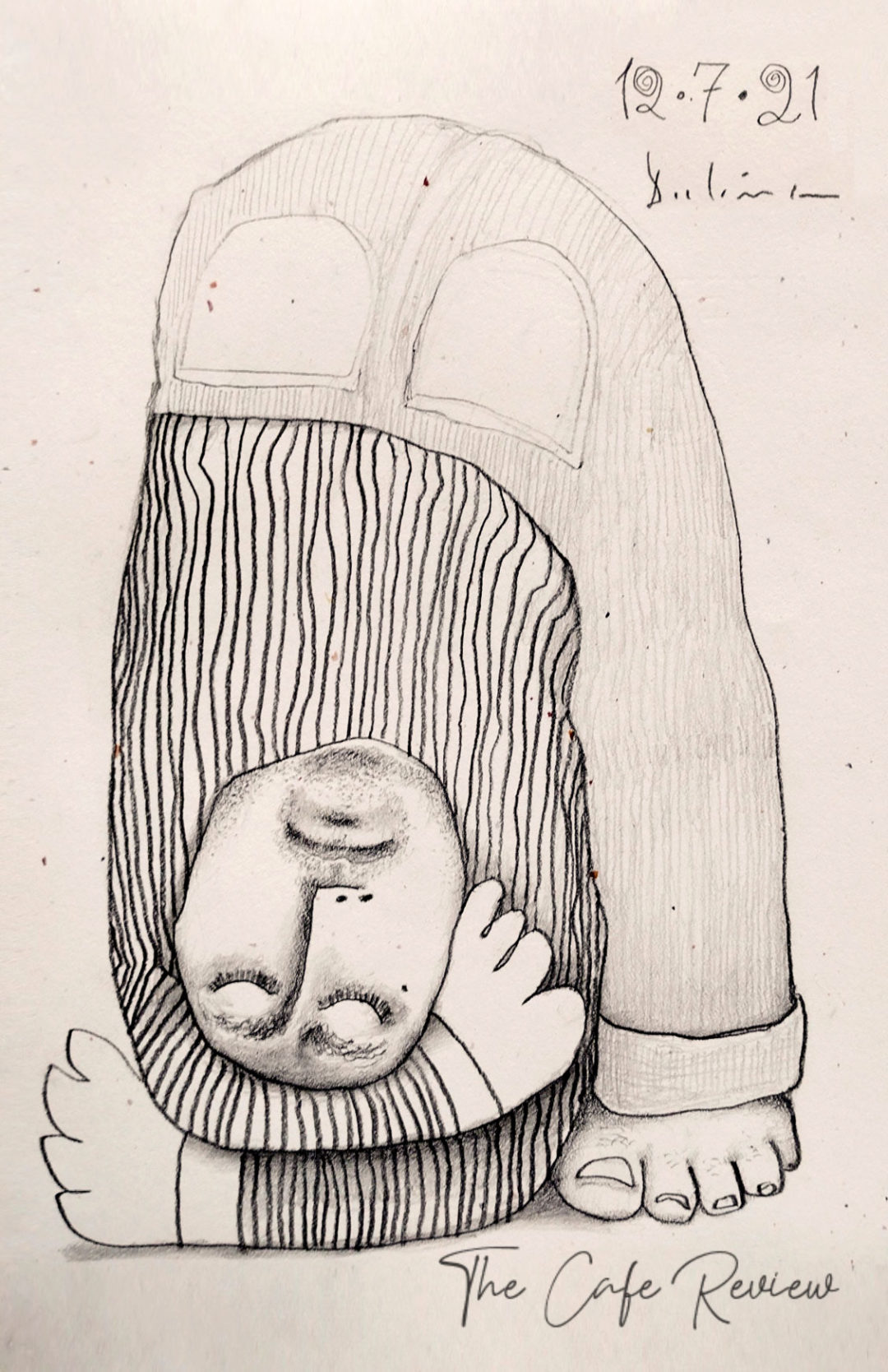Girl, Calendar 1979

by Ellen Taylor
These days start with an X on the calendar,
meaning No Blood. Five days late isn’t too bad,
but ten days late she wakes up to dread —
like a dead parent, or a plane crash,
and a hunger no food will fill.
The sour cashier doesn’t make eye contact
under the fluorescent lights of CVS,
the home pregnancy test package
slipped into a plastic sleeve
as transparent as she feels
walking home, pregnant.
She is sure of it. Her small breasts
announcing themselves for the first time,
her fear growing like a tumor.
Just as she thought, the dark brown
ring of positivity appears like a planetary
halo, and she with no ring and not even a boyfriend
feels herself float out of her bloating body
over her studio apartment like a Chagall figure.
Outside, the sky is blue as a baby blanket,
children pedal their bicycles on the sidewalk
before mothers call them home for dinner.
She’s lucky, she tells herself, no coat hanger
needed, no unmarked door on a dark street.
She still has money saved from baby-sitting
for the neighbor who works nights at the track,
her husband left her and her three kids
who love hotdogs in a skillet and toasted buns.
She’s been waitressing the morning shift
at the diner, filling coffee cups and juice glasses,
scraping runny eggs off plates into the trash.
She’s lucky, she tells herself. She’s 18. Now,
there are clinics where women and their children
wait outside with posterboards of bloody fetuses,
larger than life, red splotched babies
bobbing up and down the street
above the protester’s shoulders,
“Jesus Loves You,” they call to her.
“Don’t kill your baby.” A middle-aged woman
older than her mother, takes her arm
and leads her inside the clinic disguised as a house,
to the worn couches and tables strewn with pamphlets.
All the chairs but one are taken. She sits on the nubby upholstery,
the women around her like fellow passengers on a train
greet her with weary smiles.
She’s lucky, she tells herself. No coat hanger, no coat hanger
she tells herself in the room, where there is a dragonfly painted on the ceiling and a warm, smooth hand that squeezes hers when the pain starts. They remind her to breathe. And she does.
She breathes with her own sort of labor, until it’s over.
Home, she pulls off her boots and pulls a blanket over her,
a thick down quilt that swaddles her in warmth and safety
and for the first time in weeks, she sleeps, she dreams, she flies.
Tumblehome

by Craig Brandis
nobody’s / mesmer-eyes / bent leg / small wag /
whip taut / in a kill shelter / in Oklahoma /
until Jenna / found him / brought him
home / named him Phantom /
The Call

by Martin Vest
The Call
When the phone rang
I answered
and heard the news
of your death.
And the first person
I wanted to call
was you, of course,
to tell you that
someone we loved
had taken his life.
You had no doubt
visited the woods,
had chosen the tree,
picnicked beneath it
even, drank and
swooned, had come
to know its birds.
And then the end
of your rope —
all the old agonies you
could never express
cinched in the duffel
you had made
of your throat —
hung in mother
nature’s arms
like a sick pietá,
explicit and final,
your phone
a lost detail
in the dark
understory,
ringing and
ringing
The Shroud of Hubris

by Martin Vest
The Shroud of Hubris
for a fish
In those days I had panic attacks so severe
that I once shit myself to avoid the risk of passing
someone on my way to the community bathroom
of the sleazy hotel where I pretended to live,
where we all pretended to live —
the man in the next room with only one sock
but an arsenal of guns to polish like wingtips,
the alcoholic across from me
who recited the rosary night and day
and wouldn’t stop crying,
the vet who knew ten ways to kill a man
and practiced them all on himself.
A river ran just outside the building.
Not the splendid thing of cinema,
but a dirty canal banked by concrete,
condoms sloughed like the skins of lightbulbs,
old liquor bottles filled with Giardia and smut.
When you died I placed you into a white rag
and carried you there, your tiny purple image
pressed on the cloth when I unfolded it.
I thought of Turin, Veronica, but also of saviors pressed
like butterflies in a book, your majestic color washed away
in the brown water where other dead things go to die —
the rotting mattress on which lovers once loved,
the shopping cart, the stolen bicycle —
the guns and fists and weeping supplications
that waited upstairs in the river of crazies
where I myself was crazy.
I thought of you, but also of the species that walks on bombs,
the 40-watt lodestar that lights our dolorosa,
the bad decision of us,
the double sapien of us,
the gauntlet of spectators I’d pass on my way back
to the tenuous privacy of my room,
pupils opening and closing around me like salty mouths,
my agony an inky trifle floating in their eyes,
as close as I came to swimming.


